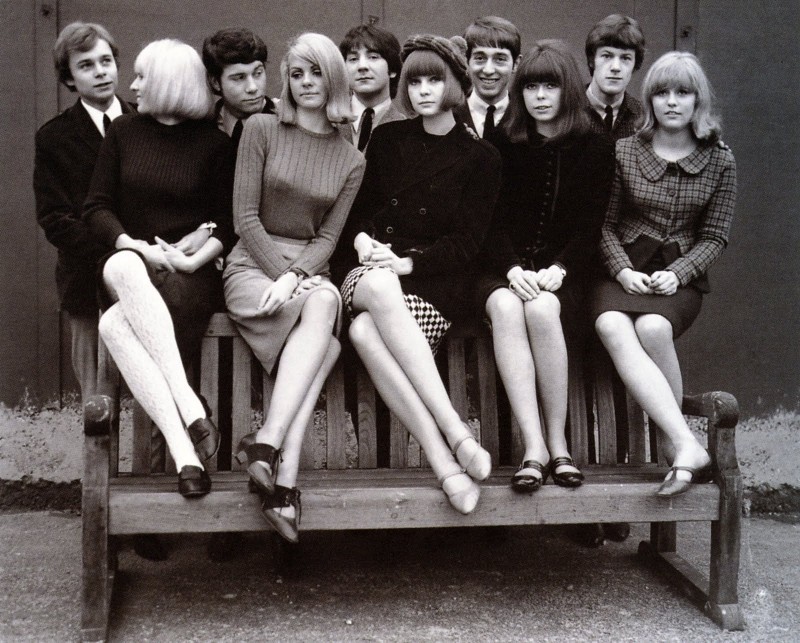Swinging London
The term Swinging London dates to April 16, 1966. The American weekly Time quoted the adjective used by the editor of the London monthly Encounter, Melvin Lasky, who was trying to describe what had been happening for some time in the city. In the parlance of the day, the word “swinging” connoted excitement and pleasure. And this is what London had become since 1963, the year which marked the end of the very long British aftermath of the war. A series of developments sparked a revolution in attitudes that extended to clothing, sexual practices, music, politics, society, and language.

Swinging London introduced words like “trendy,” “cool” and “square.”
The ideas behind Swinging London and the Swinging Sixties were fun, informality, and youth — revolutionary ideas in a society as hierarchical as England’s. The whole period can be traced back to these values (or lack of values, as the older generation claimed). Consider the primary instigators of the changes: Mary Quant, a student at Goldsmith’s College, created the minidress and helped launch the careers of models that only a few years earlier would have been considered inconceivable, such as the skeletal Twiggy.
Scotsman John Stephen, in a narrow road in central London called Carnaby Street, sold clothes that were cheap and slightly shabby that could be thrown away without remorse a week later.
The hairdresser Vidal Sassoon introduced cuts that would only stay fashionable for a short time (with one exception — long hair for men). The Beatles, The Rolling Stones, and The Who marked a dramatic break from the music of the past and became role models. Mick Jagger’s arrest for possession of drugs and the Beatles’ overshadowing of the royal family at the Prince of Wales Theater were episodes that did not go unnoticed. All of this was accompanied by a political and social earthquake.
In 1963, the Profumo affair, which saw a British government minister caught up in a sex scandal, demolished the credibility of the establishment. In 1964, Harold Wilson’s Labour government took power for the first time in 13 years and accelerated the demise of the Empire. In 1965 Winston Churchill died. The road was now open for new heroes, who were changing forever the face of London, Great Britain and — no exaggeration — the whole of Western society.
Read also:
Dior a Shanghai: la foto che ha oltraggiato i social

Museu Tèxtil i d'Indumentària

